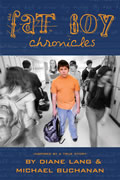Douglasville, Georgia recently settled a federal lawsuit brought by an American Muslim woman named Lisa Valentine, who was jailed due to wearing a hijab, a Muslim headscarf while at the courthouse.
ACLU lawyer Azadeh Shahshahani stated: “Obviously the manner in which Ms. Valentine was treated was inexcusable and unconstitutional,” said Shahshahani, a lawyer with the American Civil Liberties Union of Georgia. “We hope that through this settlement, no other people will be subject to this same humiliating treatment Ms. Valentine had to suffer.”
As part of the settlement, Douglasville agreed to adopt new policies that allowed those who wear religious head coverings the option to be screened privately by a same gender person. Those who have religious headwear will no longer be forced to remove them and can wear them while in court. The Georgia Judicial Council made this nonbinding recommendation to all local courts after the Valentine incident was reported.
Valentine, is an African-American woman who converted from Christianity to Islam 15 years ago and was jailed back in 2008 after she wore a hijab while taking her nephew to Douglasville Traffic Court. When a security guard told Ms. Valentine to remove her hijab she refused, protested, and then tried to leave. But the Judge ordered her arrested and jailed for ten days due to contempt of court. She was later released that day.
A similar incident occurred this past May in Henry County, when a state judge refused to allow a Muslim man to wear his religious head cap, called a kufi, while in court. Fortunately, the judge reversed his decision.
The First Amendment of the United States Constitution guarantees us freedom of religion. The U.S. Commission on Civil Rights defined freedom from religious discrimination as being guaranteed by the Fourteenth Amendment to the U.S. Constitution–thus the state of Georgia and its respective state court in Douglas County must also comply with such laws.
Religious discrimination happens when someone is denied equal protection of the laws, including equal treatment in the administration of justice and access to the courts because of the exercise of their right to religious freedom. Thus, it would be a violation of one’s constitutional right to freedom of religion through the 14th amendment whenever a Muslim, Jewish, or Christian are banned from a courtroom because they are wearing religious clothing or headgear (think a nun’s habit or Jewish yarmukle).
The largest growing number of religious discrimination cases however involve the area of employment. Title VII of the Civil Rights Act of 1964 makes it unlawful for an employer to discharge any employee or to discriminate with respect to compensation or other terms of employment due to the employee’s religion, as well as race, color, sex, or national origin. 42 U.S.C.S. § 2000e-2(a)(1).
When a plaintiff uses circumstantial evidence to prove religious discrimination, the court applies the McDonnell Douglas burden-shifting approach. This approach requires a plaintiff the initial burden to establish a prima facie case showing: (1) she is a member of a protected class; (2) she was qualified for his job; (3) she was subjected to an adverse employment action; and (4) her employer treated similarly-situated employees outside her class more favorably or replaced him with someone outside her class. Mackmuhammad v. Cagle’s Inc., 379 Fed. Appx. 801 (11th Cir. Ga. 2010)
Once the plaintiff does this, the employer must prove a non-discriminatory basis for its actions and if those are given, then the plaintiff must show that those reasons are simply pretextual (false, a cover up to hide true motives and intentions.) Id.
It is illegal to harass someone because of their religion in an employment setting. The law also requires employers to reasonably accommodate an employees religious beliefs or practices unless doing so would create more than a minimal burden on the employer’s operation. An example of reasonable accommodation would be making sure an Orthodox Jew was not scheduled during Sabbath, or a Christian on Sunday morning worship hour.
If you believe you have been a victim of religious discrimination, you can file a charge with the EEOC but there are time limits and you must do it within 180 days of the discriminatory treatment.
It is also highly recommended to seek legal counsel.
Continue reading →

 Georgia Injury Lawyer Blog
Georgia Injury Lawyer Blog




 Last week, Williams Oinonen LLC helped sponsor and organize
Last week, Williams Oinonen LLC helped sponsor and organize  This past weekend, Williams Oinonen LLC presented a volunteer lunch and learn workshop for pre-law students at
This past weekend, Williams Oinonen LLC presented a volunteer lunch and learn workshop for pre-law students at  This past year the United States Supreme Court dealt one of the most devastating blows to consumers yet, allowing big corporations to cheat Americans out of millions of dollars. In the case of AT & T Mobility v Concepcion, the Supreme Court ruled that a California’s prohibition of allowing corporations to waive class action lawsuit rights was trumped by the Federal Arbitration Act.
This past year the United States Supreme Court dealt one of the most devastating blows to consumers yet, allowing big corporations to cheat Americans out of millions of dollars. In the case of AT & T Mobility v Concepcion, the Supreme Court ruled that a California’s prohibition of allowing corporations to waive class action lawsuit rights was trumped by the Federal Arbitration Act. A second corporation that manufacturers and distributes alcohol wipes that are supposed to prevent infection just issued a large recall because of possible bacterial contaminants. The company shared a mutual supplier with the same wipe maker in Wisconsin whose products have been blamed for deaths and illnesses.
A second corporation that manufacturers and distributes alcohol wipes that are supposed to prevent infection just issued a large recall because of possible bacterial contaminants. The company shared a mutual supplier with the same wipe maker in Wisconsin whose products have been blamed for deaths and illnesses. 
 Good Georgia Lawyer invites you to attend tomorrow night’s event, a screening of the fabulous film “The Fat Boy Chronicles” presented by Sandy Springs Education Force at North Springs Charter High School auditorium, Thursday, September 15th from 7:00 p.m. to 9:30 p.m. Click on the following link for more information:
Good Georgia Lawyer invites you to attend tomorrow night’s event, a screening of the fabulous film “The Fat Boy Chronicles” presented by Sandy Springs Education Force at North Springs Charter High School auditorium, Thursday, September 15th from 7:00 p.m. to 9:30 p.m. Click on the following link for more information:  Good Georgia Lawyer invites you to attend a free movie screening of the fantastic film
Good Georgia Lawyer invites you to attend a free movie screening of the fantastic film 